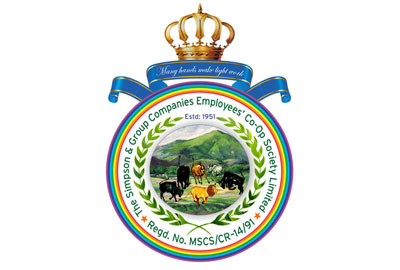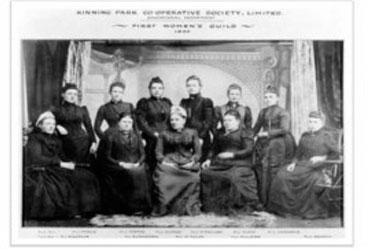History of Cooperative Movement in the World

The idea of a Co-operative dates back as far as human beings have been organizing for mutual benefit. Tribes were organized as cooperative structures, allocating jobs and resources among each other, only trading with the external communities. Post-industrial Europe is home to the first Co-operatives from an industrial context.
In 1761, the Fenwick Weavers' Society was formed in Fenwick, East Ayrshir, in Scotland to sell discounted oatmeal to local workers. Its services expanded to include assistance with savings and loans, emigration and education. In 1810, Welsh social reformer Robert Owen, from Newtown in mid-Wales, and his partners purchased New Lanark mill form Owen's father-in-law and proceeded to introduce batter labour standards including discounted retil shops were profits were passed on to his employees. Owen left New Lanark to pursue other forms of Co-operative organization and develop Co-operative ideas through writing and
lecture. Co-operative communities were set up in Glasgow, Indiana and Hampshire, although ultimately unsuccessful. In 1828, William King set up a newspaper, The Cooperator, to promote Owen's thinking, having already set up a Co-operative store in Brighton.
"Thirteen of original Members of the RochkalePineers Society Photographed in 1895"

Europe is the ‘nuclei' around which all the cooperative movement started in Britain, Japan etc in 19th century. There were several 100 societies formed in 1830 some were successful and many outlived its activities. But in all these "Rochdale pioneers" ‘who established the society with Rochdale Principles are the role model' to the present generation.
In the wake of Industrial revolution more and more skilled workers entered into poverty. As the financial situation and economical condition was so critical, giving way for the formation
Of stores dealing with domestic items which otherwise individual cannot afford to buy outside at abnormal price. During this period in the north of England a group of 28 weavers and other artisans working in the Cotton Mills in the town of Rochdale in the year 1844 organized and started a first modern and model cooperative society called the
Rochdale Equitable Pioneers Society (Photos)The prices of food grains and consumer articles were rocketing high when compare to the wages given at a very lowest ebb. This was the cause of action for mobilizing and pooling their resources in a very moderate terms as share capital for the formation and starting of a stores(photo on the right) on cooperative principle with the said share capital as main capital for their business. This share capital they collected over a period of months with great struggle to collect one pound sterling from each person. Initially they were dealing with the sale of Flour, Oatmeal, Sugar, Butter and a few Candles. They expended their business with the inclusion of Tea and Tobacco.

Honesty and transparency was treated as two eyes for the shopkeepers who run the business and because of this character they were treated with great respect and dignity was the style of function.
The Rockdale 7 Principles of cooperation were the landmark in the history of cooperation. These Principles were originally adopted by the International Cooperative Alliance (I.C.A) on 1937 and these Principles were updated by the I.C.A in the year 1966 for adoption. These Principles never lose its credibility for ever and known for its quality, and remain as the pillars for the functioning of all the cooperatives. We are so fortunate to enter into N.C.C.E, Delhi, to have an access with the working and functioning of cooperative and other states of India and abroad mainly due to the fact, that the "Education and Training" is one of the Principle of the cooperation therefore we feel bound indebted to Rockdale Pioneers.
First Woman Cooperative Society.
www.theglasgowstory.com/image.php?inum=TGSE00693

The members of Scotland's first Co-operative Women's Guild at the Kinninig park Co-operative Society in 1890. The Kinning Park Cooperative was founded in 1871 and the Women's Guild was founded nineteen years later. It was originally little more than a cookery class but soon grew to become what Patrick Dollan described as "a feminine university", where members were encourage to discuss and debate politics and other important issues of the day. By 1923 there were 283 Woman's Guilds in Scotland with 28,000 members.
Members of the Women's Guilds acquired the confidence and support required to participate in affairs of the Co-operative movement and to enter the traditionally male sphere of local government, standing for election to education authorities and local councils. Many of the women leaders of the Glasgow Rent Strike of 1915 and the Women's Peace Crusade had developed their political and organizational skills in the Women's Guild.
The Simpson & Group Companies Co-operative Credit Society Ltd (formerly known as The Simpson & Group Companies Employees' Co-Operative Society Ltd) is basically a credit organization. This Co-operative movement traced back its origin in 22.12.1951 and the date of functioning from 26.01.1952 and this Co-operative Society was organized by the Read More...
- No.1, Desi Colony, Perambur High Road, Chennai - 600012.
- 044 - 43556268
89251 44090 | 90259 99265 - raj.simpson1983@gmail.com





